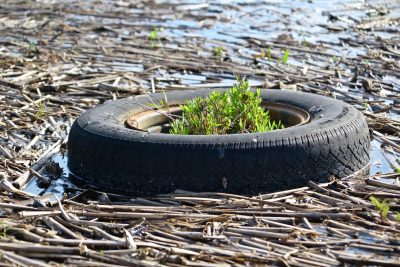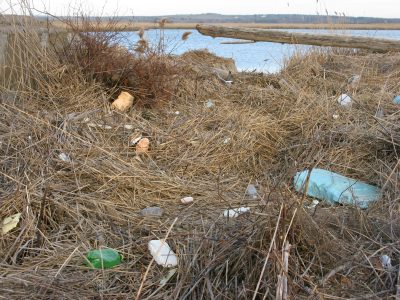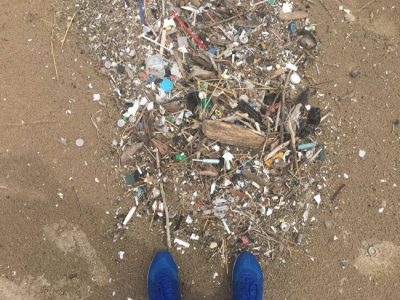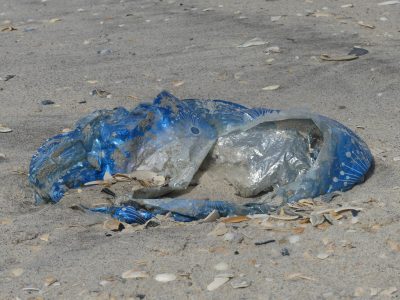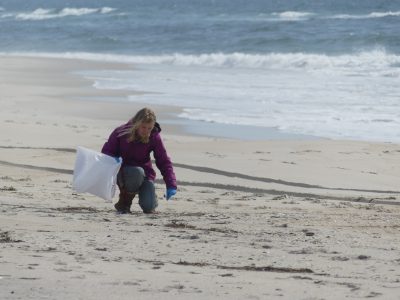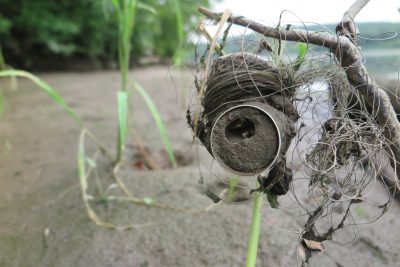
Abandoned boats, broken lobster traps, discarded tires and all types of other trash aren’t just eyesores on Long Island Sound’s beaches, coves and channels.
They’re also hazards to wildlife that can impede navigation and threaten human safety and health. To address this problem, Connecticut and New York Sea Grant programs will initiate a Marine Debris Action Plan for Long Island Sound. The project will gather groups involved in removal and prevention work as the basis for to develop a comprehensive strategy to rid the Sound of as much debris as possible.
The Marine Debris Action Plan for Long Island Sound is one of eight projects awarded funding through the National Oceanic and Atmospheric Administration’s Sea Grant-Marine Debris Special Projects Competition. A total of $350,000 was awarded for the eight projects, which will be matched by $350,000 from the state programs. The CT-NY project will receive $50,000 in federal funding which will be matched with $53,000 from the two programs. The two Sea Grant programs will develop the plan in cooperation with the EPA Long Island Sound Study, a bi-state cooperative partnership of state and federal agencies, and numerous user groups and organizations concerned about the estuary shared by New York and Connecticut. The NOAA Marine Debris Program coordinators for the Northeast and Mid-Atlantic regions will be active participants, sharing insights and experiences from other similar efforts.
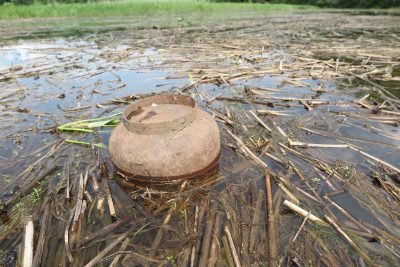
“This is a wonderful and timely opportunity to bring together organizations and individuals with an interest in reducing the impacts of marine debris on Long Island Sound through research, education and action,” said Nancy Balcom, associate director of Connecticut Sea Grant. “While a number of individual efforts are already going on, a comprehensive action plan will enable us to identify gaps, implement actions in a more comprehensive manner and collectively document our progress.“
“New York Sea Grant is thrilled to partner in this effort to reduce the flow of trash, from large to microscopic, in order to protect our Sound, its habitats and its creatures,” said Kathy Bunting-Howarth, associate director of New York Sea Grant. “Through collaborative planning, we can work to stop the flow of these contaminants into this estuary of national significance and from mistakenly being ingested as food by an aquatic creature.”
To begin the two-year project later this spring, the Sea Grant programs will invite stakeholders concerned about the marine debris issue to join as partners in a creating a plan that builds on the significant existing efforts. These include five recent major campaigns in both states aimed at reducing plastic pollution, corralling derelict fishing gear and cleaning up beaches; along with three new initiatives and three Sea Grant-funded research projects on impacts of plastic on the marine environment.
The plan will delineate goals and strategies needed for implementation, enlisting undergraduate students from UConn and Stony Brook University in service learning opportunities in the 2020-21 academic year to research other multi-state debris removal plans that could serve as templates.
As the project progresses, partners will be asked to voluntarily take on responsibilities for specific actions to advance the plan to completion. Once finished, the plan would provide a methodical description of the steps that should be followed from 2022 to 2027 to achieve the priority goals and objectives agreed up by the partners.
For more on the topic of marine debris, see www.nyseagrant.org/microplastics.
For information on the #DontTrashLISound campaign involving CT Sea Grant and several partners, see: https://seagrant.uconn.edu/2019/08/09/35-volunteers-help-kick-off-campaign-with-beach-cleanup/
